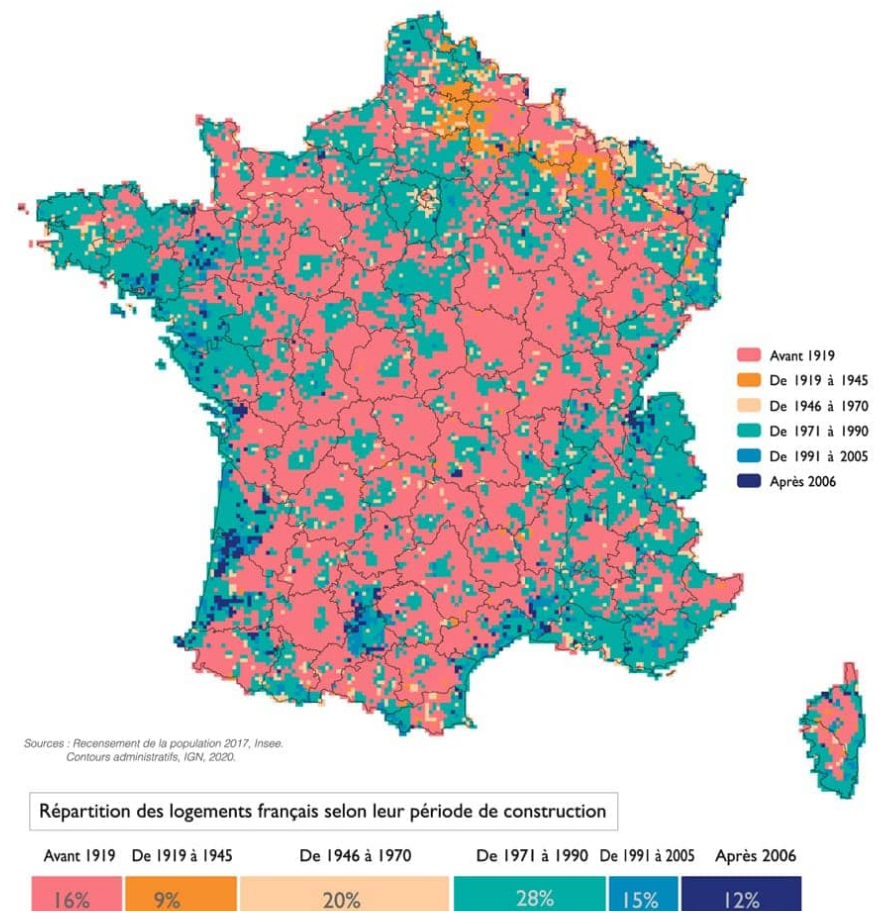Interesting that you can still see the effects of WWI in the north.
Map Enthusiasts
For the map enthused!
Rules:
-
post relevant content: interesting, informative, and/or pretty maps
-
be nice
I’m reading this as housing boom in the 70’s and 80’s, Paris needs new housing, and people are moving to the west.
There's nowhere to put new housing in Paris though.
maybe on top of the old one or under!
They do have catacombs. They could build a city under the city, with multiple levrls of streets!
It's all graveyard under there though.
Paris doesn't need new housing, it just needs to keep upgrading its existing apartments :)
Otherwise yes sounds right.
Unequal bins lead me to wonder if they were cherry picked to tell a specific story. #howToLieWithMaps101
They correspond to the larger eras in French economy.
- Industrial revolution
- Entre-deux-guerres, a period of strong urbanization and a huge push towards social housing. I suppose they included WW2 cause nothing was built there anyway.
- 1946 to 1970 is "les trente glorieuses", the time of rebuilding everything, which means everyone had a job and could afford a house or apartment.
- The oil crash in 1973 ushered in a more modern era, usually more left-wing after May 68 and with the election of Mitterrand in 1982.
- The 1990 one is around when we elected a right-wing president and the public policies vastly changed.
- 2005-2006 was starting to get tough because of oil again, I believe. It is also around the beginning of the US subprime crisis, of which the consequences affected us all too.
Then they should be labeled to reflect that.
1946-1970 appears to be high density housing. 20% and just small squares peppered around urban centers.
That seems to scan; perhaps it's the rebuilding of bombed cities in WW2
Makes sense, there's no more land.
